 Kids' Club Spanish School, LLC
https://kidsclubspanishschool.com/wp-content/uploads/2024/07/blog_summer-spanish-activities-for-kids-3.png
807
800
Alexis Fishbaugh
https://cdnwp.kidsclubspanishschool.com/wp-content/uploads/2025/05/kids-club-spanish-school-header-logo.webp
Alexis Fishbaugh2024-07-28 22:48:532024-07-28 22:48:53Summer Spanish Activities for Kids
Kids' Club Spanish School, LLC
https://kidsclubspanishschool.com/wp-content/uploads/2024/07/blog_summer-spanish-activities-for-kids-3.png
807
800
Alexis Fishbaugh
https://cdnwp.kidsclubspanishschool.com/wp-content/uploads/2025/05/kids-club-spanish-school-header-logo.webp
Alexis Fishbaugh2024-07-28 22:48:532024-07-28 22:48:53Summer Spanish Activities for KidsLEARN A SECOND LANGUAGE
So you want to learn a second language? Or maybe a third? You want to become a polyglot…
…or someone who speaks multiple languages. Speaking more than one language opens up many opportunities in life, widens ones cultural awareness and, let’s just face it, is super cool.
How many times have you heard someone speak another language, other than your mother tongue and been thoroughly impressed thinking “How do they do that?”. Well, we are going to discuss the top 5 advice of polyglots, on how to learn multiple languages effectively.
“Solely in the world of languages is the amateur of value. Well-intentioned sentences full of mistakes can still build bridges between people.“
Kató Lomb
1. Learn a Second Language – The First Foreign Language Should be Straight Forward
Our first advice from a polyglot is that when you learn a second language, or the first foreign language learned, should be as straight forward as possible. It is best to pick a language that is as close to your native language as possible, and is not too different from the one you already speak. It might be better for you to learn German, if your native language is English, than for you to learn Chinese, since German and English have more in common than English and Chinese. This theory is based on the fact that, once you learn a second language, the third and sequential languages will come much quicker. The goal being, for your first foreign language, that you need to “train” your brain to think in another language, and convince yourself that you can communicate in another language, which can be much harder than one might think. It will come to you easier and quicker if the first language learned is not too different from the native language. Any Western European languages could be a good bet, and staying away from languages that have different alphabets or completely different sounds and grammatical structures would be a good idea.
2. Choose Widely Spoken Languages
A language is a living social organism that needs to be used in order to be improved. Speakers need to practice it orally with other speakers, if any progress is to be made. If you choose languages that are not widely spoken you will have trouble finding others to practice with. Giving yourself the opportunity to speak and practice is key, so if you have many Spanish, Chinese, or Italians living in your area those could be great languages to learn. Learning Dutch could take a lot of extra work, if there is no one in your area, community, or group of friends, who can give you these oral opportunities. Devote as much time as possible to listening to, writing and speaking your new language. The key to learning is frequency and repetition. The more opportunities you have to repeat knowledge, the better.
If you choose languages that are not widely spoken you will have trouble finding others to practice with.
3. Stay Within the Same Language Family
Most Languages belong to a “Family”, having stemmed off of another “main” language. For example the “Romance Languages” all stem from Latin. If you stick to learning only Romance languages your efforts will be greatly reduced, since many of these languages share the same words and grammatical structures. Learning Spanish and then Portuguese or Italian is one of the easiest “jumps” to do, to learn a third language, because they are so similar. This also gives you great satisfaction to be able to jump right into your third language so easily, since you will be able to use it almost right away due to so many similarities. Learning Chinese after having learned Spanish could be frustrating since you already put so much effort into learning your first foreign language that you almost feel like you have to start all over, due to the amount of differences between the two. Make it easier on yourself and stick to the same family tree, taking advantage of the huge amount of vocabulary and grammar structures shared between the third language learned and what you already learned with your second language.
4. Read the Same Book in Multiple Languages
If you really loved a book that you read in your native language when you were younger, read it again in your second language and again in your third. You won’t have to struggle too much with understanding since you already know what the book is about. It will be less of a challenge when there is vocabulary that you are unfamiliar with, since you can use your knowledge of what is going on in the storyline to decipher the meanings of new words. And lastly, the fact that the book would have been written for a younger audience, will meet you at your level, avoiding frustration with material too advanced for your beginner or intermediate level. This is a great way to build a large vocabulary bank, and also to fall back in love with an old favorite book.
5. The Immersion Method
It might not be possible to completely immerse yourself in the new languages. It is expensive to pick up and move a year to another country where the language is spoken, but there are small things that we can do throughout our day to provide more immersion in the languages we are learning, setting us up for success. One great tip for creating immersion is to set all of your electronic devices in the new languages for a few days. Monday and Tuesdays can be Spanish days, Wednesdays and Thursdays French and so on. Between this tip and attending language classes, reading books in the target languages, and setting up time to speak with native speakers, you are slowly immersing yourself as much as possible in the language, ultimately setting yourself up for success. You no longer have to wonder how polyglots “do it”. This article does not deny that it is hard work and requires effort and consistence, but with a good strategy you can make the learning process so much more effective and fun, and at the same time reducing the work load. Grab those life opportunities, widen your cultural awareness and, just be cool, by becoming a polyglot.
Kids’ Club Spanish School also provides children with many chances to practice Spanish, with native Spanish speaking teachers from all over the world! Sign your child up for a free trial class to help them begin their polyglot journey.
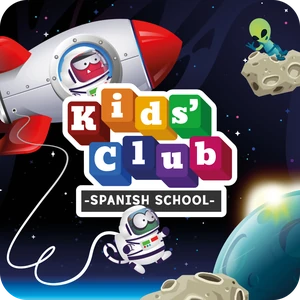
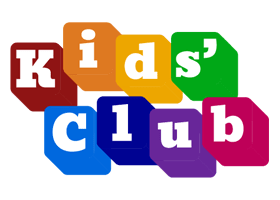
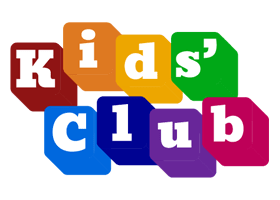


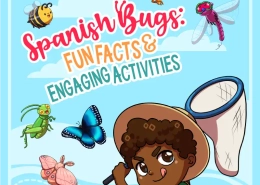 Kids' Club Spanish School, LLC
Kids' Club Spanish School, LLC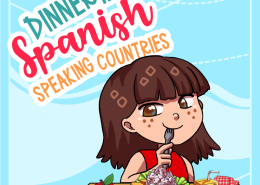 Kids' Club Spanish School, SL
Kids' Club Spanish School, SL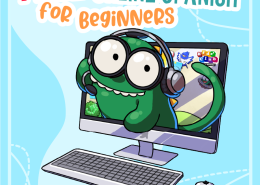 Kids' Club Spanish School, LLC
Kids' Club Spanish School, LLC

